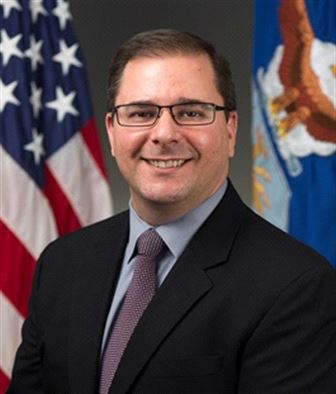
The US Air Force’s Deputy Undersecretary for Space, Winston Beauchamp, told a group of leading US satellite industry executives on March 17 that the space industry must take the lead in developing norms for safe, predictable and responsible space operations.
Speaking at an industry breakfast meeting in Washington, DC, Beauchamp said that the industry must work out ways to make small satellites, such as cubesats, visible to radar so that they can be tracked by Earth-based radars and telescopes. In turn, this data can then be used to avoid debris-causing collisions in space.
“That is work that is best done by the industry, to develop those de facto norms, without the government getting involved just yet,” said Beauchamp in comments that come as the US Government has declared the European Union-sponsored Code of Conduct for Outer Space Activities, an initiative designed to create norms for space operations, to be no longer viable as it has been met with sustained opposition from China, Russia and other countries.
Acknowledging that there is now international consensus that deliberately creating space debris is a bad thing, Beauchamp told his audience that the next task is to develop workable norms that can avoid such actions.
“We already know what irresponsible behavior in space looks like… [when] you talk about these things in public, everybody claims they want to be responsible in space. So that’s great, that’s a good thing. All we have to do now is define our terms,” Beauchamp said.
Commercial satellite communications providers are already developing their own norms for safe, predictable and responsible space operations through their participation in the Space Data Association (SDA), based in the Isle of Man, situated in the Irish Sea between Britain and Ireland.
The SDA acts as a neutral clearing house for positional and frequency data of member satellite communications companies so that other members can be notified to steer clear of satellite manoeuvers and avoid collisions and other unwanted mishaps. In effect, the SDA allows member companies to tacitly cooperate to avoid unwanted accidents while still being able to compete with each other in a tough marketplace.
Among the members of the SDA are Arabsat, Israel’s Amos-SpaceCom, Qatar’s Es’hailSat, and Turkey’s TurkSat.
 SpaceWatch.Global An independent perspective on space
SpaceWatch.Global An independent perspective on space

